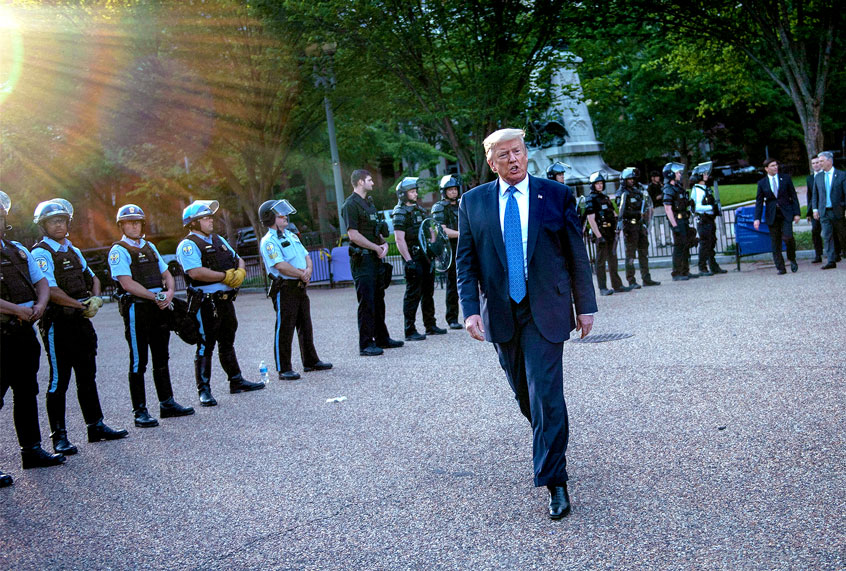A bipartisan group of former national security officials and lawyers is calling for new restrictions on a president's ability to deploy troops on U.S. soil, arguing that existing law is "antiquated" and grants too much power to one person.
The group convened at the invitation of The American Law Institute to examine the Insurrection Act of 1807, which former President Donald Trump has threatened to invoke should he return to the White House, ostensibly to address what are now-declining rates of crime in major cities.
In a statement, Bob Bauer, who served as White House counsel under former President Barack Obama, argued that the Insurrection Act itself is “poorly drafted" and full of "vague or obsolete language." It "has been clear for decades that this antiquated law needs serious revision," he said.
As it stands, the Insurrection Act permits the president to deploy U.S. armed forces domestically in response to outbreaks of violence, including rebellion against federal or state governments. It was last used by former President George H.W. Bush in 1992 in response to riots in Los Angeles sparked by the acquittal of police officers in the Rodney King case.
Jack Goldsmith, who served as an assistant attorney general under former President George W. Bush, said in a statement that he agrees the law “gives any president too much unchecked power." He and others in the group would like to see Congress eliminate outdated language, such as references to "obstructions" and "assemblages," that could be cited to justify another deployment; they would also like to see deployments subject to a statutory limit of 30 days, with any extension requiring lawmakers' consent.
Included among those calling for reform is a former member of the Trump administration. John Eisenberg, who served as a lawyer for the National Security Council under Trump, told The New York Times that the Insurrection Act, as currently written, should alarm Democrats and Republicans alike.
“This is something of great importance regardless of what party you are in because, obviously, it is an area that can abused,” Eisenberg said. “If the triggers, for example, are too vague, the risk is that it can be used in circumstances that do not really warrant it. So it is important to tighten up the language to reduce that risk.”

